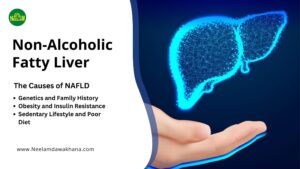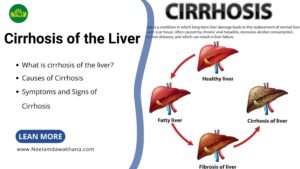Table of Contents
Liver Issues Symptoms
One of the biggest and most important organs in the body, the liver efficiently regulates metabolism, digestion, and detoxification. Liver Issues Symptoms Although the liver is flexible, it may still be affected by a wide range of variables that can lead to problems and cause pain as well as serious health consequences. It is essential to understand liver disease signs and remedies, including Liver Issues Symptoms, in order to preserve general health and avoid complications.
Understanding Liver Anatomy and Function
The liver, which is located in the upper right section of the belly, works hard to carry out a variety of vital tasks that are essential to maintaining general health and wellbeing.
The Role of the Liver in the Body
The liver acts as a multitasking powerhouse, responsible for processing nutrients, filtering toxins, and aiding in digestion.
Common Liver Functions
Among its primary functions are bile production, metabolism of fats, proteins, and carbohydrates, and detoxification of harmful substances from the bloodstream.
Symptoms of Liver Issues
Not all liver diseases have obvious symptoms and indicators. If liver disease symptoms do manifest, they might are:-
- Fatigue and weakness
- Abdominal pain or discomfort, especially in the upper right portion
- Jaundice, characterized by yellowing of the skin and eyes
- Unexplained weight loss
- Loss of appetite
- Nausea and vomiting
- Swelling in the abdomen or legs
- Easy bruising and bleeding
- Dark urine
- Pale-colored stools
- Itchy skin
- Confusion or difficulty concentrating
- Chronic fatigue
- Tendency to bruise easily
- Increased sensitivity to medications and alcohol
Infection in Liver and Causes
Infections in the liver can be caused by various pathogens, including viruses, bacteria, parasites, and fungi. These infections can lead to inflammation of the liver tissue and compromise its function.
Liver infections can arise from various sources:
Viral Hepatitis: Hepatitis viruses (A, B, C, D, and E) can cause acute or chronic liver infections, with B and C often leading to chronic hepatitis.
Bacterial Infections: Bacteria like E. coli, Salmonella, and Streptococcus can infect the liver, causing conditions like abscesses or septicemia.
Parasitic Infections: Parasites such as Entamoeba histolytica and Schistosoma species can damage the liver, especially in regions with poor sanitation.
Fungal Infections: Candidiasis and aspergillosis affect individuals with weakened immune systems, like those with HIV/AIDS.
Common Liver Infection and Cause :-
Hepatitis B Virus (HBV) Infection:
Hepatitis B is a viral infection transmitted through contact with infected blood or body fluids, such as through unprotected sex, sharing needles, or from mother to child during childbirth.
Genetic Problems with the Liver
- Hemochromatosis: Excessive iron absorption leads to liver damage.
- Alpha-1 Antitrypsin Deficiency: Lack of a protective protein causes liver inflammation.
- Wilson’s Disease: Copper buildup harms the liver and brain.
- Polycystic Liver Disease: Genetic cyst growth causes liver enlargement.
- Non-Alcoholic Fatty Liver Disease (NAFLD): Genetic variations increase fat accumulation in the liver.
Immune System Abnormality with the Liver:
The liver’s immune system can be affected by various conditions:
- Autoimmune Hepatitis: Immune system attacks healthy liver cells, causing inflammation and damage.
- Primary Biliary Cholangitis (PBC): Immune system damages bile ducts, leading to liver inflammation and scarring.
- Primary Sclerosing Cholangitis (PSC): Inflammation and scarring of bile ducts impair liver function.
- Liver Transplant Rejection: Body’s immune system may reject transplanted liver tissue.
- Viral Hepatitis: Hepatitis viruses trigger liver inflammation and damage.
- Alcoholic Liver Disease (ALD): Chronic alcohol consumption weakens the immune system and harms the liver.
Risk Factors of Liver Issues:
- Alcohol Consumption: Excessive drinking can lead to liver damage.
- Viral Hepatitis Infections: Infections like hepatitis B and C increase liver disease risk.
- Obesity and Metabolic Syndrome: Being overweight or obese contributes to fatty liver disease.
- Unhealthy Diet: High intake of saturated fats and sugars harms the liver.
- Medications and Toxins: Some drugs and environmental toxins damage the liver.
- Family History: Genetic predisposition increases liver disease risk.
- Injection Drug Use: Sharing needles increases hepatitis risk.
- Chronic Liver Diseases: Autoimmune conditions and other chronic diseases harm the liver.
- Genetic Disorders: Hemochromatosis and Wilson’s disease can damage the liver.
- Exposure to Hepatotoxins: Industrial chemicals and certain supplements harm liver cells.
How to avoid liver disease:
Limit Alcohol Consumption: Drink alcohol in moderation, if at all. Excessive alcohol consumption can lead to liver damage and increase the risk of liver disease.
Maintain a Healthy Weight: Adopt a balanced diet rich in fruits, vegetables, lean proteins, and whole grains. Aim to maintain a healthy weight to reduce the risk of fatty liver disease and metabolic syndrome.
Exercise Regularly: Engage in regular physical activity to support liver health and overall well-being. Aim for at least 30 minutes of moderate exercise most days of the week.
Eat a Balanced Diet: Consume a diet low in saturated fats, sugars, and processed foods. Focus on incorporating nutrient-dense foods that support liver function and overall health.
Stay Hydrated: Drink an adequate amount of water each day to help flush toxins from the body and support liver function.
Practice Safe Sex: Practice safe sex by using condoms to reduce the risk of sexually transmitted infections that can affect liver health, such as hepatitis B and C.
Avoid Sharing Needles: Avoid sharing needles or other drug paraphernalia to prevent the transmission of hepatitis viruses and other bloodborne pathogens.
Get Vaccinated: Ensure you are up-to-date on vaccinations for hepatitis A and hepatitis B to protect against these viral infections.
Limit Exposure to Toxins: Minimize exposure to environmental toxins, chemicals, and pollutants that can harm liver function. Follow safety guidelines when handling toxic substances.
Manage Chronic Conditions: Manage chronic conditions such as diabetes, high blood pressure, and high cholesterol through regular medical care, medication adherence, and lifestyle modifications.
Avoid Excessive Medications: Use medications only as directed by healthcare professionals and avoid excessive use of over-the-counter drugs and supplements that can strain the liver.
Attend Regular Check-Ups: Schedule regular check-ups with your healthcare provider to monitor liver health, identify risk factors early, and address any concerns promptly.
Conclusion
In conclusion, understanding the symptoms and treatment options for liver issues is essential for maintaining optimal health and well-being. By recognizing early warning signs, seeking timely medical intervention, and adopting a healthy lifestyle, individuals can effectively manage liver conditions and improve their quality of life. For more information and guidance on liver health, visit neelamdawakhana.com.




